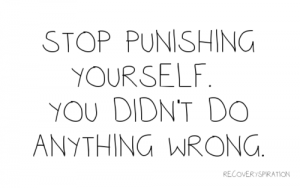What is most personal, is most universal.
Depression is the most common mental health problem worldwide. A 2014 ONS report stated that 19.7% of people in the UK showed symptoms of anxiety or depression. Although these statistics are alarming, they’re important in telling us that these experiences are more common than we think. This means that there are a lot of us out there who can provide empathy, understanding, and perhaps stories of what worked for us, to those who are experiencing these problems right now.
When it comes to engagement and attendance, the biggest challenge that depression brings is low motivation. Everything becomes much harder to do, like pushing a huge boulder uphill. This comes from a combination of having lower energy levels, and an overriding sense that our actions are less worthwhile. It is certainly not laziness, despite what your inner critic might tell you.
Do one thing.
If you search the internet for tips on managing low motivation, you will find a lot of advice about making lists, doing something physical like sport, getting out and socialising etc. Those of you who are experiencing depression will appreciate that this is like asking you to wave a wand and magic up some energy. It is not going to happen just like that.

When the mammoth task ahead of you is to leave bed, you need to focus on doing just one small thing. Let’s say it is opening your eyes. Do that. Focus on it, get it done, and then tick that task off.
Push away the voice that might be telling you that this is a pathetic task, and is worrying you about all the other more important things you haven’t started to tackle yet. Remember that you’ve achieved something that perhaps you didn’t think you could achieve.
The next job is to do another small thing. Let’s say, wiggle your toes. Pathetic, I hear you cry. Ignore that, and wiggle on. Task done. Tick it off mentally. Look for the next: pushing the duvet off…
The chemistry of rewards.
Achieving tasks stimulates striatal pathways in the brain: a reward circuit that makes us feel good. There is evidence that these pathways are impaired in major depression. By giving yourself many smaller tasks to achieve, you are giving your brain more chances to reward you. This is in direct contrast to a common thought in depression: “I just need to get through the day”. In reward terms, this thought will leave you feeling starved.
Task selection in the depressed world.

The above advice asks you to adjust your expectations to take the impact of depression into account. You can do this in other ways too. Be selective in the big tasks you pick. It might be reasonable to expect that you will achieve three things in a day for example. So, save your energy for the important ones. Some examples might be:
- Do the dishes so that your flatmates don’t begin to hate you.
- Attend an online seminar and take notes.
- Walk to the shops to buy groceries.
Be compassionate towards yourself.

Some of these things are really difficult to do all by yourself, so please allow yourself to ask for help. This includes seeing your GP, talking to one of the university Mental Health Advisers, opening up to someone in the academic department if you think that would be helpful, like your School Support Officer, and finally asking a good friend for help.
The act of selecting daily tasks, making a weekly planner, or doing shopping, can be quite difficult to do all by yourself. So talk them through with a friend. Ask them for help. If you feel hesitation, ask yourself how you would answer if they were to ask you for your help.
Don’t forget to make time for doing the things you enjoy. When energy is low and time feels ever more precious, it is doubly important to look after yourself.
Failure is part of the process. I’ve talked about this elsewhere in the blog, but it really bears repeating, you are going to fail at some of these things. Try and expect it, accept it as part of the process, and don’t give yourself a hard time.
